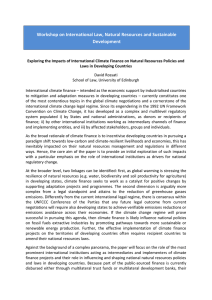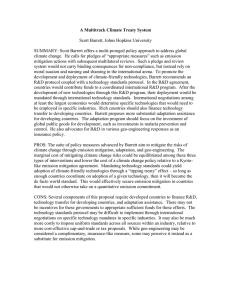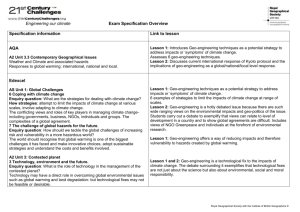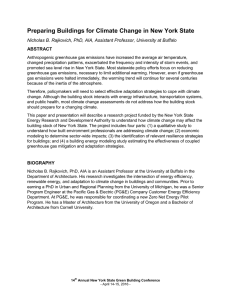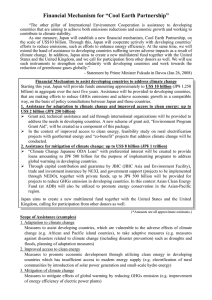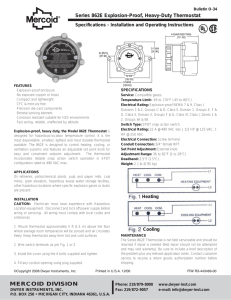"Whose hands are allowed at the thermostat?” Voices from Africa Petra Tschakert
advertisement
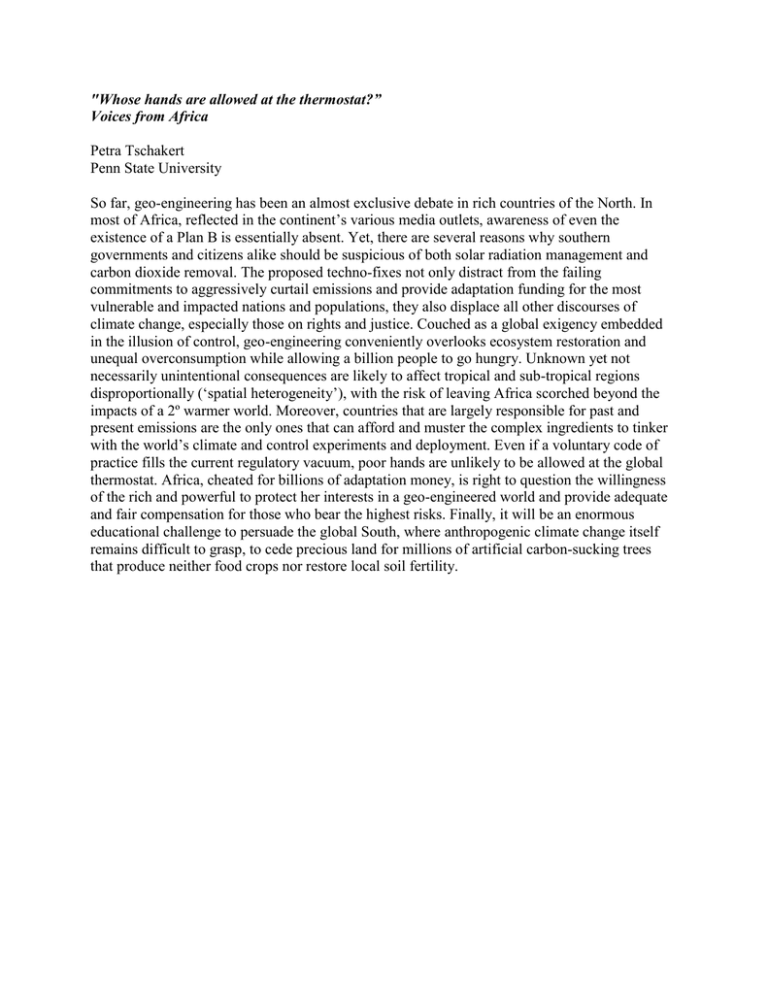
"Whose hands are allowed at the thermostat?” Voices from Africa Petra Tschakert Penn State University So far, geo-engineering has been an almost exclusive debate in rich countries of the North. In most of Africa, reflected in the continent’s various media outlets, awareness of even the existence of a Plan B is essentially absent. Yet, there are several reasons why southern governments and citizens alike should be suspicious of both solar radiation management and carbon dioxide removal. The proposed techno-fixes not only distract from the failing commitments to aggressively curtail emissions and provide adaptation funding for the most vulnerable and impacted nations and populations, they also displace all other discourses of climate change, especially those on rights and justice. Couched as a global exigency embedded in the illusion of control, geo-engineering conveniently overlooks ecosystem restoration and unequal overconsumption while allowing a billion people to go hungry. Unknown yet not necessarily unintentional consequences are likely to affect tropical and sub-tropical regions disproportionally (‘spatial heterogeneity’), with the risk of leaving Africa scorched beyond the impacts of a 2º warmer world. Moreover, countries that are largely responsible for past and present emissions are the only ones that can afford and muster the complex ingredients to tinker with the world’s climate and control experiments and deployment. Even if a voluntary code of practice fills the current regulatory vacuum, poor hands are unlikely to be allowed at the global thermostat. Africa, cheated for billions of adaptation money, is right to question the willingness of the rich and powerful to protect her interests in a geo-engineered world and provide adequate and fair compensation for those who bear the highest risks. Finally, it will be an enormous educational challenge to persuade the global South, where anthropogenic climate change itself remains difficult to grasp, to cede precious land for millions of artificial carbon-sucking trees that produce neither food crops nor restore local soil fertility.

